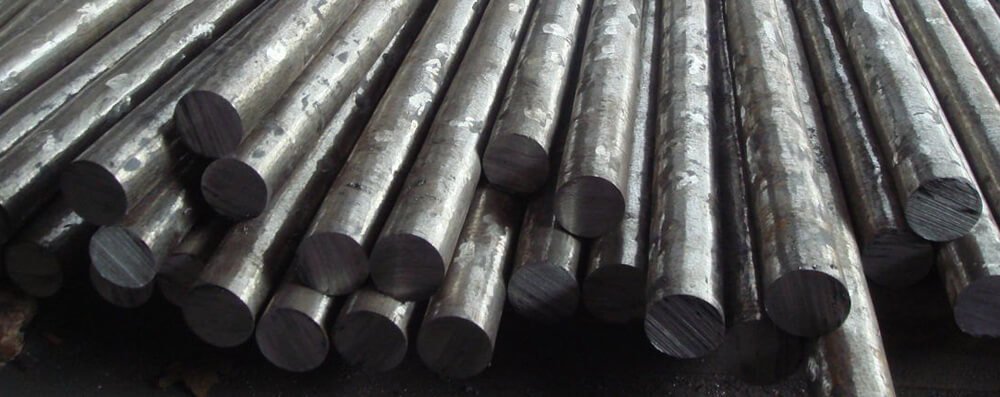Introduction
D2 tool steel is a high-carbon, high-chromium, air-hardening cold work steel known for its outstanding wear resistance, high hardness, and dimensional stability during heat treatment. It is widely regarded as one of the most versatile and reliable tool steels, particularly favored for long-run tooling and cutting applications where wear resistance is critical.
D2 combines a high carbon content (for hardness) and a significant chromium content (providing corrosion resistance), making it extremely durable under severe operating conditions.
Uses/Applications:
D2 tool steel is ideal for applications requiring long-term wear resistance and high hardness, such as:
- Punches and dies for blanking and forming
- Cold extrusion dies
- Thread rolling dies
- Shear blades
- Forming rolls
- Industrial knives (paper, plastics, metals)
- Molds for abrasive plastics
- Precision cutting tools
- Slitters and circular cutters
Properties of D2 Grade:
- Exceptional Wear Resistance
- High Surface Hardness After Heat Treatment
- Good Dimensional Stability During Heat Treatment
- Moderate Corrosion Resistance
- Air-Hardening Capability (Minimal Distortion)
- Good Toughness for a High-Carbon Steel
- Excellent Edge Retention
Its ability to retain a sharp edge and resist wear makes it highly valuable in both industrial and tooling environments.
Chemical Composition:
| Element | Content (%) |
| Carbon (C) | 1.40 – 1.60 |
| Chromium (Cr) | 11.00 – 13.00 |
| Molybdenum (Mo) | 0.70 – 1.20 |
| Vanadium (V) | 0.70 – 1.20 |
| Manganese (Mn) | 0.60 |
| Silicon (Si) | 0.10 – 0.60 |
| Phosphorus (P) | ≤ 0.03 |
| Sulfur (S) | ≤ 0.03 |
The high chromium content enhances wear resistance and gives D2 some corrosion-resistant properties compared to standard carbon steels.
Mechanical Properties:
| Property | Typical Value |
| Hardness (Annealed) | ≤ 255 HB |
| Hardness (After Hardening) | 58–62 HRC |
| Tensile Strength (Ultimate) | Approx. 1900 MPa (hardened) |
| Yield Strength | Approx. 1400 MPa (hardened) |
| Elongation at Break | ~5–8% |
Properties may vary depending on heat treatment and specific conditions.
Physical Properties:
| Property | Typical Value |
| Density | 7.7 g/cm³ |
| Modulus of Elasticity | 210 GPa |
| Thermal Conductivity | 20.0 W/m·K (at 100°C) |
| Specific Heat Capacity | 460 J/kg·K |
| Coefficient of Thermal Expansion | 10.4 × 10⁻⁶ /°C (20–100°C) |
D2 maintains physical integrity under thermal and mechanical stresses due to its alloy structure.
Forging:
Forging Temperature Range: 950°C – 1050°C
Procedure:
- Preheat slowly to 700°C – 750°C.
- Raise temperature to the forging range.
- Do not forge below 900°C to avoid cracking.
- Cool slowly after forging in furnace or warm dry ash.
Post-forging annealing is essential to relieve internal stresses.
Heat Treatment:
-
Annealing:
- Heat slowly to 850°C – 900°C.
- Hold for several hours.
- Cool slowly in the furnace at a rate of 10°C/hr down to 600°C, then air cool.
-
Hardening:
- Preheat in two stages: 450°C – 600°C, then 800°C – 850°C.
- Austenitize at 1020°C – 1040°C.
- Quench in still air or pressurized gas (vacuum hardening recommended for minimal distortion).
-
Tempering:
- Temper immediately after cooling to room temperature.
- Typical tempering range: 150°C – 550°C.
- Double or triple tempering is often recommended to remove retained austenite.
- Higher tempering temperatures (above 500°C) reduce hardness but improve toughness.
Dimensional Tolerances:
Bright Bars:
- Standard tolerances in accordance with DIN 1013 or ASTM A681.
- Precision-ground bars are generally to h9/h11 tolerance classes.
Forged Products:
- Based on specific customer requirements and standards.
Minimal distortion during air-hardening supports tight dimensional control.
Machinability:
Relative Machinability: Approximately 50–60% (relative to 1% carbon steel).
Machining Tips:
- Machine D2 in the annealed condition to extend tool life.
- Use carbide or coated tooling for best results.
- Preheat to 100–200°C during heavy machining to minimize cracking risk.
Due to high wear resistance, machining can be challenging but manageable with appropriate tooling.
Corrosion Resistance:
- D2 has better corrosion resistance compared to most cold work tool steels because of its high chromium content.
- However, it is not a true stainless steel and will rust if exposed to moist or corrosive environments without protection.
- Surface coatings (e.g., nitriding, PVD coatings) can enhance corrosion protection for longer life.
Weldability:
Poor weldability due to high carbon and alloy content.
If welding is necessary:
- Preheat thoroughly to around 400°C.
- Use filler materials compatible with D2.
- Post-weld heat treatment (stress relieving and re-hardening) is essential to restore properties and avoid cracking.
Available Form:
D2 tool steel is available in a variety of product forms, including:
- Bright Round Bars
- Forged Bars
- Flat Bars
- Plates
- Blocks
- Custom Cut Sizes
Availability depends on supplier offerings and customer-specific requirements.
Conclusion:
D2 tool steel is a premium grade cold work tool steel that provides an outstanding balance of wear resistance, toughness, and dimensional stability. It is ideal for high-volume production tooling and parts that must withstand repeated impact and abrasion. Despite being moderately difficult to machine and weld, its superior performance in challenging environments makes D2 an excellent choice for dies, knives, punches, and industrial cutting tools. Proper heat treatment and careful handling ensure the best possible performance, service life, and value from D2 steel products.


